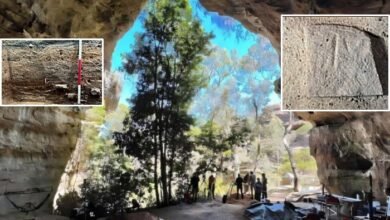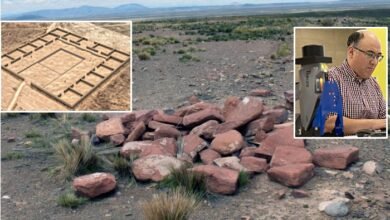Why Was Dementia Extremely Rare In Ancient Greece And Rome?

Conny Waters – AncientPages.com – When analyzing 2,500-year-old medical texts, scientists were surprised to discover dementia was hardly mentioned at all. Everything indicates memory loss was more or less unknown in ancient Greece and Rome. How can this be explained?
Severe memory loss occurring at epidemic levels today was extremely rare 2,000 to 2,500 years ago, in the time of Aristotle, Galen, and Pliny the Elder, according to the scientists from the University of Southern California who conducted the study.
Credit: Adobe Stock – Sebastian
There is evidence people in ancient Rome relied on different methods and tricks to improve memory. One of the most famous methods was the use of Rhetorica ad Herennium, the first known book on the art of memorization.
“Rhetorica ad Herennium was formerly attributed to Cicero (Marcus Tullius, 106–43 BCE), a Roman lawyer, orator, politician, and philosopher, but of unknown authorship, sometimes ascribed to an unnamed doctor. The book was the most popular book on rhetoric during the Middle Ages and the Renaissance.
The book is still used today as a textbook on the structure and uses of rhetoric and persuasion.” 1
As valuable as Rhetorica and Herennium may be for memory improvement, they are unlikely to be the reason why dementia was so rare in the past.
“The term dementia was occasionally used in antiquity, but not invariably linked to old age. Ancient Greeks and Romans expected intellectual competence beyond age 60. While some memory loss was acknowledged, we found only four accounts of severe cognitive loss that might represent Alzheimer’s disease and related dementias (ADRD), the scientists write in their study published in the Journal of Alzheimer’s Disease. 2
“The ancient Greeks had very, very few , but we found them — mentions of something that would be like mild cognitive impairment,” said first author Caleb Finch, a University Professor at the USC Leonard Davis School of Gerontology. “When we got to the Romans, and we uncovered at least four statements that suggest rare cases of advanced dementia — we can’t tell if it’s Alzheimer’s. So, there was a progression going from the ancient Greeks to the Romans.”
Scientists suggest today’s widespread dementia stems from modern environments and lifestyles.
The ancient medical writing by Hippocrates and his followers catalogs ailments of the elderly such as deafness, dizziness and digestive disorders, but makes no mention of memory loss.
The Greek-Roman doctor Aelius Galen (129 – 216 A.D.) points out that individuals at the age of 80 begin to have difficulty learning new things. Pliny the Elder notes that the senator and famous orator Valerius Messalla Corvinus forgot his name. Cicero prudently observed that “elderly silliness … is characteristic of irresponsible old men, but not of all old men.”
These are rare cases that cannot be compared to dementia of modern days. So why and how could memory loss be a new modern disease?
The researchers propose that pollution and neurotoxin are to be blamed. Finch speculates that as Roman cities grew denser, pollution increased, driving up cases of cognitive decline. In addition, Roman aristocrats used lead cooking vessels and lead water pipes and even added lead acetate into their wine to sweeten it, unwittingly poisoning themselves with the powerful neurotoxin.
Some ancient writers observed the toxicity of lead-containing material, but the problem was put aside until the middle of the 20th century. Archaeologists have investigated how and why so many people in ancient Rome died of lead poisoning. Some scholars have suggested lead poisoning led to the fall of the Roman Empire through its ubiquitous use in aqueducts, water pipes, household implements, and medicine.
Memory loss was very uncommon among ancient Romans. Credit: Adobe Stock – Massimo Todaro
Due to a lack of demographic data for ancient Greece and Rome, Finch investigated ancient aging in today’s Tsimane Amerindians, an Indigenous people of the Bolivian Amazon. The surprising results showed the Tsimane people who have a preindustrial and very physically active lifestyle have extremely low rates of dementia. Among older Tsimane people, only about 1% suffer from dementia. 3
This is a huge contrast to the 11% of people aged 65 and older living in the United States who have dementia, according to the Alzheimer’s Association.
“The Tsimane data, which is quite deep, is very valuable,” Finch said. “This is the best-documented large population of older people that have minimal dementia, all of which indicates that the environment is a huge determinant on dementia risk. They give us a template for asking these questions.”
Further historical analysis may formulate critical hypotheses about the modernity of high ADRD prevalence, the researchers concluded.
Written by Conny Waters – AncientPages.com Staff Writer
Expand for references






